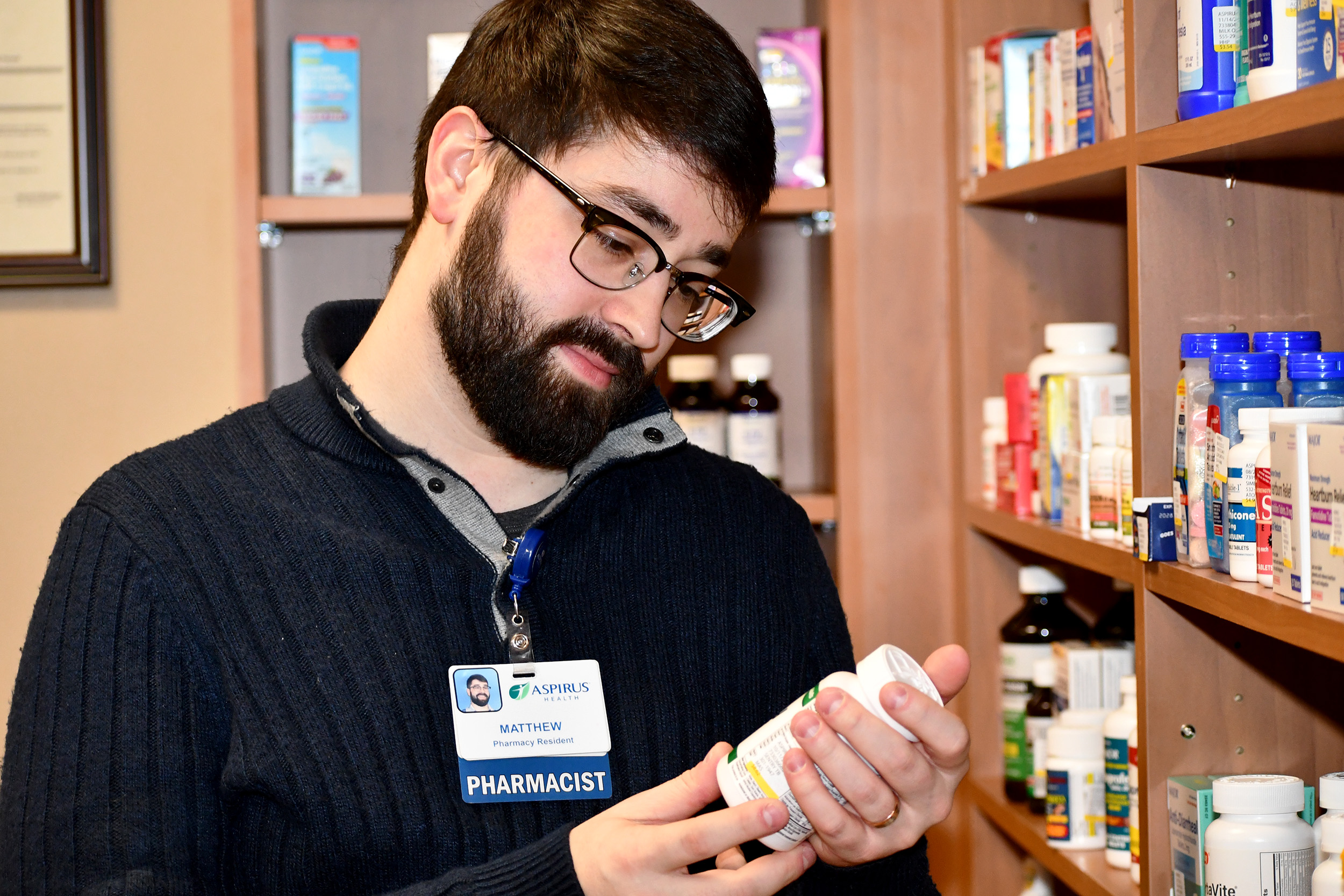Prescription for a Safe Celebration
Aspirus Expert’s Tips on Navigating Alcohol and Medication During the Holidays
12/18/2023

Matthew Wateski, Aspirus Pharmacy Resident
Recent
research from the University of Wisconsin (UW) reveals a sobering fact:
Wisconsin leads the U.S. with a 26 percent rate of excessive drinking,
including both binge and heavy drinking. This statistic gains even more
significance this time of the year. With the holiday season in full swing, it’s
important to prioritize responsible choices and promote a safe and enjoyable
holiday for everyone.
"Mixing alcohol
with prescription drugs or over-the-counter medications can compromise their
effectiveness, worsen side effects, and even introduce new, unpleasant symptoms
over time,” cautions Matthew Wateski, Aspirus Pharmacy Resident. “The side effects
really depend on the specific medications you're taking, so it’s important to
learn your individual risks to help you make informed choices while enjoying
the holiday season."
For individuals
managing high blood pressure or chest pain with medications, the combination
with alcohol can lead to adverse effects. Wateski explains, "Drinking
alcohol, even in short periods, can increase blood pressure, rendering
medications less effective. Symptoms such as dizziness, headache, and
lightheadedness may intensify, accompanied by an elevated heart rate."
In the realm of
diabetes management, Wateski points out a critical concern. "Common
medications like metformin come with a warning for lactic acidosis, which is an
increase in lactic acid. Alcohol can also cause increases in lactic acid
production, so when taken together, lactic acid buildup can reach dangerously
high levels. You may experience nausea, vomiting, fainting and
lightheadedness.”
For those grappling
with depression or anxiety, combining medications such as Elavil, Zoloft,
Xanax, Valium, Ambien, or Lunesta with alcohol can be dangerous. Matthew
advises, "This mixture may result in increased dizziness, extreme fatigue,
and even dangerous decreases in consciousness or breathing rates."
When it comes to
antibiotics, take extreme caution. "Alcohol and antibiotics, when
combined, can have harsh side effects on the stomach, such as nausea and
diarrhea. Severe reactions are possible with specific antibiotics like Flagyl
or Bactrim, taken for certain infections, and can lead to facial flushing,
sweating, increased heart rate, or drops in blood pressure," says Wateski.
Matthew emphasizes
the need for open communication with health care providers, especially for
those prescribed opioids like Vicodin, Lortab, or Oxycodone. "Combining
these medications with alcohol can lead to life-threatening respiratory issues
and extreme fatigue. Discussing your alcohol use with your provider is crucial
to avoid these dangerous side effects."
Even seemingly
harmless over-the-counter pain medications like Tylenol require caution.
Wateski says, “When you’re drinking alcohol and taking Tylenol together, your
liver is working double duty with these two agents.” Wateski also highlights
the risk of stomach bleeding or ulcers when combining nonsteroidal
anti-inflammatory medications like Ibuprofen or Naproxen with alcohol.
Wateski concludes
that, ultimately, moderation and transparency are key. He adds, “It’s extremely
important to have open communication with health care providers and pharmacists
when considering alcohol and medication interactions. Everyone should be aware
of any potential side effects to ensure safe and healthy holiday celebrations.”

Back to all Posts